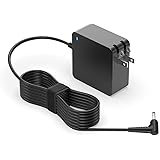BetterYouJourney.com is a participant in the Amazon Services LLC Some of the links in our posts are affiliate links. Click here to see full Disclosure.
In our increasingly digital age, the concept of real estate has taken a novel form that exists not in physical space, but in the vast and limitless expanse of the internet. Website flipping, a form of online real estate, has emerged as a lucrative business model. This digital landscape offers fruitful opportunities for entrepreneurs willing to delve into the intricacies of buying, improving, and reselling online properties. Just like in traditional real estate, the objective is to purchase a property — in this case, a website — at a lower rate, enhance its value, and sell it for a significant profit. The following exploration provides detailed insights into the terminology, procedures, strategies, and potential returns of this business, guiding ambitious minds on a journey to understand the concept in depth.
Understanding Online Real Estate & Website Flipping
Understanding Online Real Estate
Online real estate is a term used to describe digital properties built on an internet platform. This includes websites, domains, mobile apps, and digital products. Each of these properties can be bought, developed, and sold for profit, much like physical real estate. The value of these properties depends on their income generation, traffic, and other factors.
Website Flipping: A Closer Look
Website flipping, the process of buying a website or a domain, improving it, and then reselling it for profit, is a business model that has grown in popularity with the rise of the digital age.
In its essential form, website flipping has three steps: buying a website, increasing its value, and selling it for profit. The method of value increase varies and can include improving design, boosting traffic, adding monetizable content, or expanding website functionalities.
This form of online real estate business is analogous to real estate flipping in the physical world, where property investors buy homes at a low cost, renovate them, and sell them at a higher price.
Marketplaces for Website Flipping
A variety of online marketplaces facilitate the buying and selling of websites. These include Flippa, Empire Flippers, and FE International. These platforms offer an array of websites for sale in all types of niches, making them accessible to all types of businesses and entrepreneurs.
Potential Profitability from Website Flipping
The profitability of flipping websites varies greatly depending on numerous factors like the initial cost, the improvement made, and the selling price. Successful flippers often have strong knowledge in website development, SEO, and industry trends, giving them an understanding of what makes a website valuable to buyers.
However, as with any business venture, website flipping carries risks. There’s never a guaranteed profit, but with careful investment and a strategic approach, website flippers can reap significant rewards.
Why Do People Flip Websites?
There are several reasons why someone might get into the business of website flipping. Some people enjoy the creative and analytical challenge that comes with improving websites. Others appreciate the flexible, location-independent work that it offers. And of course, many people flip websites for the potential profits.
Understanding Website Value Variations
The worth of a website can swing widely due to several reasons. Factors such as the website’s content, traffic quantity and quality, how it’s monetized, the power of its domain, its social media standing, and its SEO position, all contribute to determining its final value.
Just like in the physical real estate market, a website’s “location” or niche can also influence its value. Websites operating in profitable niches and pulling in a significant volume of quality, organic traffic usually hold higher value for potential buyers.

Identifying High Potential Websites for Flipping
Selecting Potential Websites for Flipping
Website flipping essentially involves buying a website or a domain, enhancing its functionality and aesthetics, optimizing its content, and finally selling it for a profit. Much like flipping houses, the idea here is to discover websites that are undervalued or have an immense scope for improvement, and then capitalize on their increased value. If you’re contemplating diving into the digital real estate market, you need to take into account several important factors while identifying promising websites for flipping.
Understanding Traffic Metrics
Among the primary indicators of a website’s value is its traffic or the number of visitors it receives. Websites with a consistent and substantial flow of targeted traffic can generate consistent income from advertising, affiliate sales, product sales, and other revenue streams. Use third-party tools such as Google Analytics or SimilarWeb to gain insight into a website’s traffic.
Revenue Streams and Potential
A business website with multiple diverse revenue streams, or the potential to add them, can ensure sustainability and growth. Current income generation should be analyzed in detail, accounting for the sustainability of that income, dependency on any particular factors, and potential for multiplication.
Assessing Backlink Profile and Domain Value
The backlink profile of a website represents the number, quality, and relevance of incoming links from other websites. A strong backlink profile can significantly boost the website’s visibility on search engines, drive more traffic, and increase revenue. The Domain Authority (DA) is another vital factor to consider. Websites with a high DA are more likely to rank well in search engines. Tools such as Moz Domain SEO Analysis Tool can provide detailed insights into the backlink profile and domain value.
Niche Analysis
The chosen niche plays a critical role in the profitability of the website. Selecting high-demand and low-competition niches, which are areas of interest or fields that you are skilled or knowledgeable in, can make it easier for you to add value to the website and make it more attractive to potential buyers.
Conducting Due Diligence
Most experienced website flippers understand the importance of due diligence before making a purchase decision. This includes confirming the authenticity of all claims made by the current owner, reviewing financials, verifying traffic data among others. Use reliable tools and websites to cross-check claims. If you’re buying through an online marketplace, take advantage of their escrow services to ensure a safe transaction.
Growth Potential
While current indicators are essential, the future potential of the website should also be considered. This includes scalability, possible revenue expansion, niche growth, and the potential for ongoing content creation.
Website flipping, much like flipping a physical property, entails the buying, renovating, and reselling of websites to turn a profit. It’s a worthwhile pursuit, but it’s not without its hurdles – it demands a substantial input of time and funds, not to mention a well-rounded grasp of the digital market landscape. To really capitalize on this strategy, you need to single out websites that show promising potential, perform rigorous due diligence, and then take steps to boost their value for a greater return on your internet real estate investments.

Purchasing & Improving Websites
Getting to Grips with the Steps to Procuring Existing Websites
The journey to flipping websites profitably begins with the acquisition of an existing website. This process often involves trawling through websites listed for sale, carefully evaluating their potential, and haggling over the price. Multiple online platforms, such as Flippa and Empire Flippers, exist to bring together buyers and sellers of websites. In choosing which website to purchase, it’s critical to take into account aspects such as traffic, revenue, domain authority, and content quality. The ultimate aim is to identify a website that, with the right improvements, holds untapped potential that could translate into significant profits when it’s flipped.
Improving Content for Website Value Addition
Once a website has been purchased, it’s time to start improving its content. High-quality content is invaluable in attracting traffic and increasing user engagement. This could involve rewriting existing content, adding fresh content, or even redesigning the entire website to make it more visually appealing and user-friendly. Additionally, integrating keywords appropriately can improve the website’s search engine ranking, leading to more organic traffic.
Optimizing for SEO to Boost Web Traffic
SEO optimization is another critical aspect of improving a newly purchased website. This involves using various techniques to boost the website’s visibility on search engines. It includes practices such as improving website speed, ensuring mobile compatibility, using structured data, and securing the website with HTTPS. Proper keyword research and on-page optimization can help the website rank higher on search engine results, attracting more traffic and boosting the website’s value.
Enhancing User Experience for a Higher Website Value
Another crucial step in preparing a website for resale is enhancing the user experience. This could involve improving website navigation, reducing page load time, adding informative and relevant content, as well as including helpful features like a search bar or a call-to-action. A good user experience can increase both website engagement and conversion rates, thereby raising the website’s overall value.
Monetizing Strategies to Increase Website Profitability
Putting in place effective monetization strategies can also improve website profitability, making it more appealing to potential buyers. This could involve establishing affiliate partnerships, incorporating pay-per-click advertising, or selling products or services directly from the website. A high-income-generating website is likely to be more attractive to buyers, increasing its resale value.
From Enhancing to Evaluating: Preparing Your Website for Resale
As your website starts to generate a steady income after all the necessary improvements, consider its preparation for resale. This typically involves calculating the website’s worth, taking into account its traffic, revenue, potential for growth, and other integral factors. A balanced and fair price is crucial at this stage. Once determined, it’s time to position your website on various online platforms for potential buyers to see. If you play your cards right with effective marketing strategies and adept negotiation skills, flipping websites can turn into a fruitful online real estate venture.

Selling and Profit Realization
Finding Suitable Online Platforms For a Successful Sale
Before you can proceed with selling your enhanced website, the initial step is to pinpoint the accurate online platform where the listing will yield the best results. Marketplaces like Flippa, FE International, Empire Flippers, among others, have earned popularity for buying and selling websites. The appeal of these platforms lies in their wide pool of prospective buyers and the provision of escrow services for secure transactions for both selling and buying parties. However, careful research goes a long way in choosing the platform best suited to your website’s specifics and target audience.
Setting a Realistic Selling Price
Determining a realistic selling price for your website can be challenging. Typically, websites are valued at 24-36 times their monthly profit, although this can vary based on several factors including traffic, monetization method, growth trajectory, and operational requirements. It’s important to strike a balance between a price that ensures a good return on investment, and one that potential buyers find attractive. Utilizing tools such as website profit calculators or consulting with industry professionals can aid this process.
Negotiation Tactics
Negotiation plays a key role in maximizing the final sale price of a site. It’s imperative to enter negotiations equipped with clear knowledge of your website’s worth, its potential for growth, and your bottom-line price. Being open to terms that could be beneficial, such as seller financing or phased payments can also be advantageous. Remember, displaying willingness but not desperation to sell can lead to a better negotiation outcome.
Transfer Process
Once a deal has been agreed upon, the website transfer process begins. This involves migrating the website to the buyer’s hosting platform, transferring ownership of all associated social media accounts and email lists, and providing any agreed-upon post-sale support. Using an escrow service is recommended for this phase, as it will ensure that the buyer only releases payment once they’ve confirmed receipt of all the assets involved.
Smooth Transaction Assurance
Ensuring a smooth transaction process is essential for both parties’ peace of mind. Clear and open communication is key throughout the entire process, from the negotiation stage to the final transfer. Establishing a written contract that lays out the terms of sale, including what is being sold, the sale price, the payment method, and any promises of post-sale support can also prevent misunderstandings or issues later on.
Profit Realization: When and How?
Payment terms can strongly impact when sellers realize their profits. Most transactions will utilize an escrow service, which protects both parties. The buyer deposits payment with the escrow service, who releases the funds to the seller once the buyer confirms receipt of the site and associated assets. This means sellers can expect to see their profits soon after the transaction is complete. However, if seller financing or phased payments are part of the deal, profits could be realized gradually over an agreed period. In such cases, it’s crucial to have a legal contract in place to protect both parties.
In summary, selling an improved website requires a series of steps: listing on the right platform, setting a logical price, negotiating effectively, overseeing a smooth transfer, and ensuring a secure transaction. Once these are successfully navigated, sellers can reap the fruits of their digital real estate investment.

From identifying high-potential websites to the final realization of profit, the journey of flipping a website is riddled with challenges and victories. With informed decisions and strategic interventions for improvement, you can turn this journey to your advantage. Revenue generation, traffic spikes, effective monetization strategies, and user experience enhancements reflect the key aspects that drive the value of a website. The successful sale of an online property not only depends on its inherent qualities but also the skills of the seller in navigating the marketplace, setting apt prices, and orchestrating smooth transactions. With a robust understanding of these facets of online real estate, one can chart a profitable course in the domain of website flipping.








